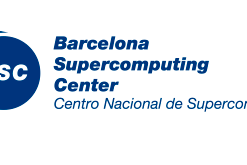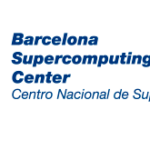Context And Mission
The Computer Sciences (CS) department of the Barcelona Supercomputing Center aims to carry out research and development to influence the way computing machines are built, programmed and used. The Workflows and Distributed Computing group at the Barcelona Supercomputing Center aims to carry out research on programming models for distributed computing. More specifically, this group is working in the COLMENA project which contributes to the definition of next-generation computing and data technologies by proposing a framework to ease the programming, deployment and maintenance of hyper-distributed applications on the device-edge-cloud Continuum.The group will have a significant effort devoted to the definition of the COLMENA programming model and its software platform.
For this research, the group is looking for a PhD student to do research on AI topics related to the design and implementation of the COLMENA programming model and software platform. In particular, topics of interest can be focused on AI for swarm intelligence including bio-inspired algorithms and reinforcement learning. The job also includes active participation in the project, attending project meetings, collaborating with partners and writing deliverables.
More details on the COLMENA project are given below:
The new programming model environment is inspired on organic colonies: collections of autonomous individuals with heterogeneous characteristics that cooperate forming different social organizations. In this new approach, each smart device (IoT sensor/actuators, network access point/router or Edge/Cloud server) composing a cyber-infrastructure is considered as an Autonomous ageNT (ANT) aware of its own IT capabilities (data processing power, storage capacity, sensors and actuators equipped, available network interfaces, etc.) and context (geo-location, owner, etc.). In such an environment, services will be described as a society with different roles. Each role is defined by behaviour (program logic), the necessary software dependencies and the hardware requirements to play it. The role composition of such a society will be defined by a set of rules that indicate the number of players of each role. ANTs autonomously pick one or more roles to play according to its characteristics, the requirements of each role and the current role distribution. Upon their decision, they contextualize themselves downloading the necessary software and start the execution.
At any point, the infrastructure may change; a new ANT can join in or leave the Colony, the service may be in a peak or valley workload moment, or a network service may be disrupted. To rapidly adapt to these changes, ANTs constantly revisit their roles and consider any possible reconfiguration that may improve the service. The goal of the project is to develop a platform to create, deploy and operate services on the device-edge-cloud continuum. A programming framework capable of reducing the complexity of programming swarms. The “roles” will be programmable through simple, high-level programming interfaces, where no low level details are exposed. The project will also develop the necessary libraries and layers to support such an interface.
The funding for these actions/fellowships and contracts comes from the European Union Recovery and Resilience Facility – Next Generation, within the framework of the General Invitation by the public business entity Red.es to participate in the talent attraction and retention programs within Investment 4 of Component 19 of the Recovery, Transformation, and Resilience Plan.
For more information, please check: https://www.bsc.es/join-us/excellence-career-opportunities/ai4s
Key Duties
Research and development of the COLMENA programming model
Research and development of the COLMENA software platform
The candidate will work closely with other research members on the team of the Workflows and Distributed Computing group
Requirements
Education
Computer science degree or similar
Essential Knowledge and Professional Experience
Previous experience in runtime systems and system software
Knowledge of Distributed Computing
Good programming skills in Java and C, and/or Python
Additional Knowledge and Professional Experience
Previous experience in distributed programming models
Experience in container management platforms (Docker, Kubernetes, …)
Competences
Fluency in spoken and written English, while fluency in other European languages will be also valued
Conditions
The position will be located at BSC within the Computer Sciences Department
We offer a full-time contract (37.5h/week), a good working environment, a highly stimulating environment with state-of-the-art infrastructure, flexible working hours, extensive training plan, restaurant tickets, private health insurance
Duration: 4 years
Holidays: 23 paid vacation days plus 24th and 31st of December per our collective agreement
Salary: : R1 – PhD 1st and 2nd year: 25.000,00 € / R1 – Phd 3rd and 4th year: 30.00,00€
Additional Expenses Grant: Each fellowship will be associated with a grant for additional expenses, such as IT equipment, travel, training, stays, etc.
Starting date: asap – the incorporation for this vacancy must be before the 16th of December 2024


